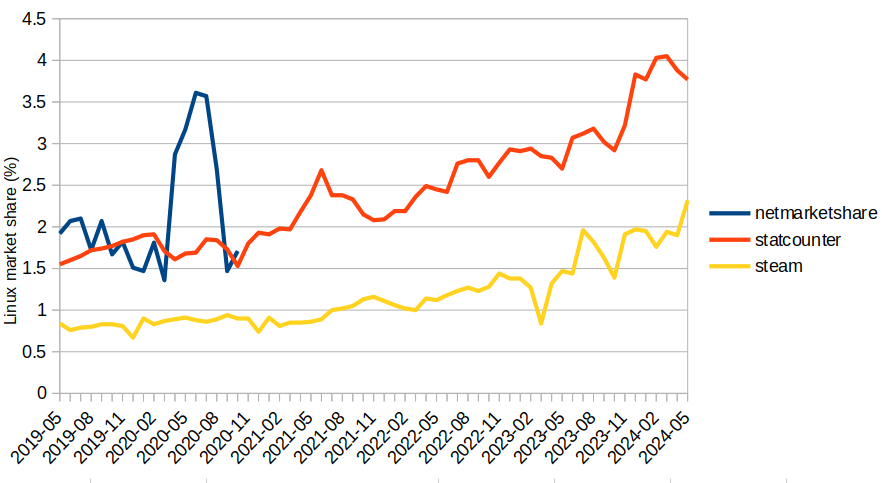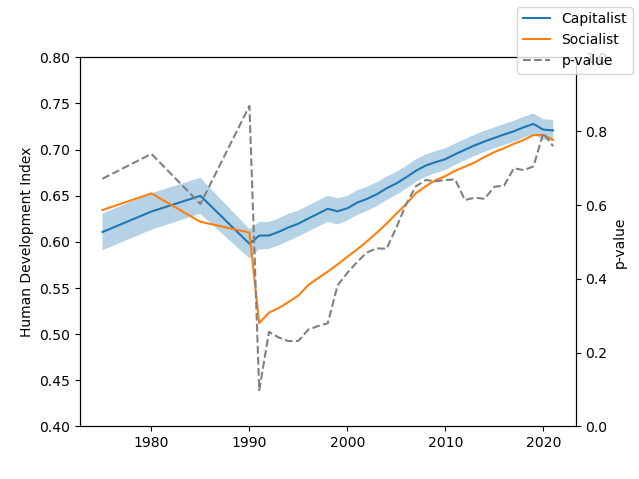Linux (windows at work tho).
pancake
Late-Permian extinction. Not very imaginative, but I find it cool that there are so many hypotheses even about the largest mass extinction ever.
Western companies outsource much of their production to countries with cheaper labor, so the really important things here are cheap raw materials and state subsidies. Since the Chinese state owns many of the large companies there, they can reduce profits throughout the supply chain or move them to other companies in the form of these subsidies. As well as use that money to build transport and green energy infrastructure, further lowering manufacturing costs.
Investors always seek short-term profit, so playing the long game is something you need aggressive policies for.
I'd say it's too soon to see if China will take an imperialist approach. The US and Europe seem to be decoupling from them, so they are in desperate need of well-developed markets that will buy their products. It's in their own best interest that African nations develop quickly (which also hurts the US and Europe, making it harder to get cheap raw materials, thus doubly good for China).
It would be a win definitely, but unfortunately resolutions made by the General Assembly are not binding.
I used to be afraid of looking at mirrors at night. Idk what it's called, spectrophobia maybe? Well, anyway, one night I took acid and happened to look at a mirror while blasted off my mind. Staring at it felt so disappointingly mundane that I laughed at myself for expecting anything to go wrong. Lost my fear permanently.
When returning from kernel code, one should issue Drop Execution Ring Privileges, of course.
Very interesting. I'd say China will only increase and cheapen its production even more, which will allow them to push their influence. They have been focusing on doing exactly that, by building efficient transportation networks, putting increasingly more companies' equities in the hands of the state (and therefore sidestepping investors), and, recently, setting up abundant facilities for cheap, green energy production. All three of those policies rely for their swift and massive realization on what US policymakers nowadays seem to refer to as "non-market" dynamics, which are basically out of the question for them.
Chemical damage to our bodies mostly consists of both oxidation and Maillard-like reactions. So we're both slowly burning and getting cooked!
Imagine a situation wherein everyone has more or less the same amount of money. They can afford the same number of houses, let's say, two small, or one larger house. Even if there's some inequality, it's not hard to imagine people buying larger or smaller homes and yet everyone being able to afford one. Renting is an afterthought in this scenario.
If inequality grows larger, some people will not be able to afford ownership, and then renting becomes profitable; those who can afford more than one house will buy more than they need, increasing demand and then offering those homes for renting and getting profit. This in turn increases inequality, but as long as the forces pushing it down prevail, this state can last for long.
The crisis breaks out when these mechanisms eventually come out of balance, pushing a large share of people out of the market, and homeownership starts concentrating.
The idea is that investing is only profitable when people don't have what they need; any solution that gives them that (increasing public housing is a popular proposal here) will reduce profit. In fact, profitability is at a maximum now because of the housing crisis, and even just going back to step 2 would reduce it. A "perfect" solution would give everyone homes at the best price physically possible and with full liquidity, which would sink renting yields to basically zero.
Objectively, yes. But it was polarizing at the time because some of the people present were investing heavily in real estate.



I guess we could make one using newer FHE-RAM techniques and some edge case handling.